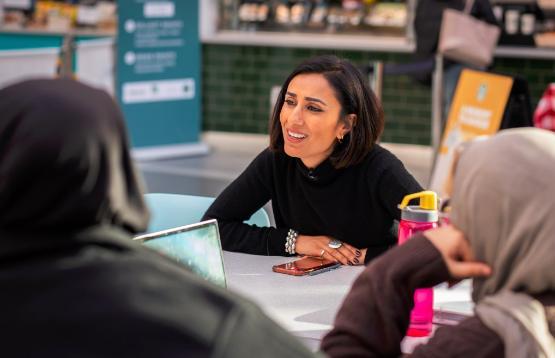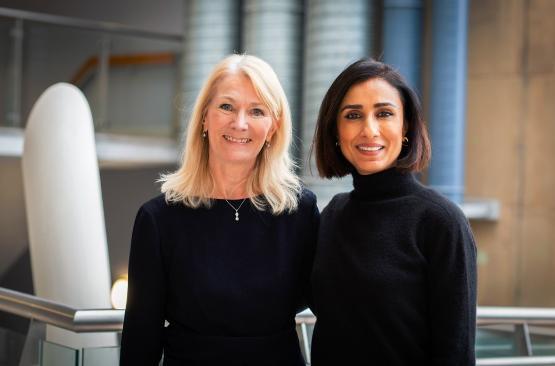Anita Rani Scholarship will help disadvantaged women
University of Bradford Chancellor and TV/radio personality Anita Rani has launched her own scholarship to help women from disadvantaged backgrounds.

The scholarships will provide a tuition fee reduction for international students and cost of living support for home students , the first of which will be awarded in the 2024/25 academic year.
Anita Rani said: “Going to university completely changes your life, it opens your world up not only through education but the culture and people you get to meet – this is about instilling the next generation with confidence to step into the world.
“One of the things I wanted to do was to support women to gain access to a higher education. This has been a passion of mine forever, so the fact that we will be able to fulfil it is incredible.
“University isn’t just about acquiring knowledge; it’s about finding your own voice, cultivating your passions, and gaining the confidence to forge a new path. The Rani Scholarship will give women who have faced or live with significant challenges a chance to pursue their dreams.”

The Rani Scholarship is built from Anita’s passion and personal experience of how higher education can change the trajectory of women’s lives.
The scholarship will support four female students each year, who are facing disadvantage, to study and succeed at university in subjects and industries where they are most underrepresented.
Anita Rani became the university’s seventh chancellor in March 2023, following in the footsteps of Lord Harold Wilson (1966-85), Sir John Harvey Jones (1986-91), Sir Trevor Holdsworth (1992-97), Baroness Lockwood (1997-2005), Imran Khan (2005-14), and Kate Swann (2015-22).

University of Bradford Vice-Chancellor Professor Shirley Congdon, pictured above (left), with Anita, said: “Not every student arrives at university with the support they need to thrive. Many women, like Anita, are the first in their families to go to university – at Bradford today more than two-thirds of our entrants are first-generation students.
“Giving females facing disadvantage or significant challenges access to education not only changes their lives but can fundamentally change the lives of every generation after them.”
